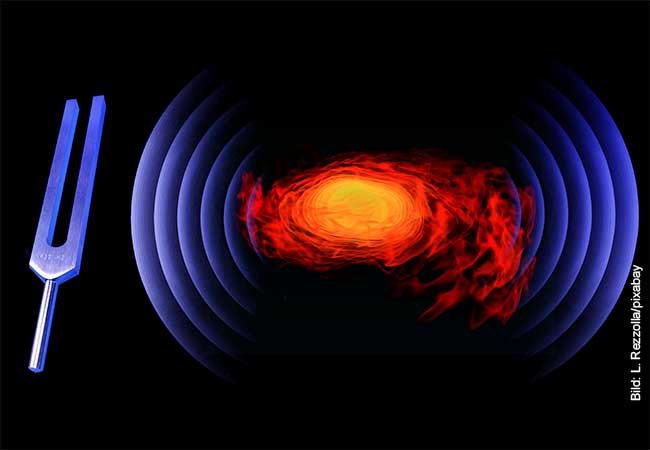(pour une version française suivez ce lien)
All around the world, cultures have attempted to understand the motions of celestial objects—the Sun, Moon, and planets. One of the most important of these is the Sun, which determines the seasons. It is crucial not only for setting the timing of planting essential crops that feed the population, but also for predicting the dates of ceremonies that regulate the social order of communities. So I was surprised when I witnessed one of these alignments in the street layout of a city in Central Europe.
Around Christmas a couple of years ago as I was walking in my hometown of Lausanne, Switzerland, I noticed that the Sun was setting directly straight ahead of me, perfectly aligned with the street I was walking on (called Mon Loisir). I knew the area since I was a little boy running around the neighborhood. I remember being in the middle of that street at night, oblivious to the possible oncoming cars, looking straight up to the sky. There was not so much light pollution then, so I had an easy time looking at the stars, trying to imagine the infinity and vastness of it all until my head started to spin. At the time I had no knowledge of the astronomical calendar solstice, equinoxes, Moon phases. etc…
The four alignments of the year
On that day more recently, since I had become an amateur astronomer, building a couple of telescopes and spending many nights observing the sky, I was fully ready to appreciate this phenomena. Being around Christmas, a holiday that was placed very close to the winter solstice to coincide with the ancient tradition of celebrating the renewal the longer days bring. Although the exact days of the solstice are the 20th or the 21st of the month, the Sun lingers in that spot for at least a week, and in fact, that is why it is named ‘solstice’, which means ‘sun standing still’. This was a fortunate alignment as the light rays shone along the street. Being interested in these celestial phenomenas, that evening I checked this alignment with an application called “Photographers Ephemeris” which maps the “ephemerides” (the rising and setting of the Moon, planets and stars on the horizon,) dedicated to help photographers predict the kind of lighting they can expect by mapping the path of celestial bodies for their photo shoots.
Above the google map view are in yellow and orange the path of the Sun summer solstice. It shoes the Sun setting (orange) on “Avenue du Servan” and rising on “Mon Loisir” (yellow) (the gray and black are the Moon’s path.)
Above the google map view are in yellow and orange the path of the Sun winter solstice. It shoes the Sun setting on “Mon Loisir” (orange) and rising on “Avenue du Servan” (yellow) (the gray and black are the Moon’s path.)
The application confirmed that indeed the winter solstice setting of the Sun was aligned with Mon Loisir. Since I was in the app I decided to check the winter solstice rising, and it actually matched a perpendicular street (Avenue du Servan) that crossed Mon Loisir at a roundabout up the street. That was a bit surprising; and investigating further, I checked the Summer Solstices, and discovered that the Sun rose and sat at the opposite direction of these two streets.
So I had a perfect alignment of all the solstices with these two streets, which would let you standing at the circle of the roundabout, and be able to view the rising and setting of both the winter and summer solstices.
Now the question arises: is this by chance, or planned alignment?
First using the same application, I checked several cities (London, Berlin, Paris, Madrid and a few others around the world), looking for traffic circles and/or roundabouts to find another example of this kind of alignment. To my surprise I could not find any - and of course, my search was not exhaustive, but this gave the planned option a little more weight.
I then made an appointment with the archives department of the city of Lausanne to see if I there was any documentation about the development of these streets. I had to describe beforehand what I was looking for, so the person receiving me had dug up a wealth of information, mainly from the late 19th century, when this area was urbanized. Originally their was only one street that ended in a dead end, and this street was aligned with the summer evening of the solstice.
My attempts to find out who actually designed the plans for the extension were unsuccessful, but the key to the full alignment is Mon Loisir. Avenue du Servan was extended with an alignment already built in with the summer evening solstice, but what made the completion of this solar circle was the addition of Mon Loisir. Single streets that correspond to one alignment are relatively common, but in this case we have a full 360 degrees match of the solstice ring and setting, definitely more unique.
Avenue du Servan before the extension and and the addition of “Mon Loisir”, You can see in the middle of the vineyard the little pass that would become “Eugène Grasset”
So this arose my curiosity. Architects have aligned construction of all sorts with the “ephemerides”, starting with the pyramid of Giza, countless sacred buildings aligned with the Sun or other celestial objects; and of course, the megalithic gathering of stones that is Stonehenge, all serving as observatories/calendars. I am wondering if some creative urbanist would have recognized an opportunity and acted on it.
Plan for the project of extention and creation of new streets
This is where I start to speculate. As you can see on the map there is another street that crosses the circle; that street is not aligned with any obvious stellar object; in fact, it predates all others and was originally more a path than a street. It was also called Servan which predated the creation of all the street in the area, but sometime earlier in the 1900s it was changed to the name of the graphic artist Eugène Grasset. He was very much tied to the calendar. He became very famous designing calendar art in the late 1890’s. Eugène was a close friend of Violet Le Duc who was an architect specializing in refurbishing monuments such as castles and churches. At the time, he was directing a controversial renovation of the cathedral of Lausanne. And as I mentioned earlier, orientation of many ancient buildings was carefully thought out.
Eugège Grasset month of Jully
Could these two, with a deep knowledge of the calendar and ancient building orientation, have been influential on this alignment? The re-naming of a street that bears Eugène Grasset’s name seems to justify the linkage. On the other hand, it is most likely a chance alignment - some natural rock formations present interesting alignments (See my post about Painted Rock) and the hand of humans were certainly not involved. But again, this street alignment was designed by these hands. In any case, this is an interesting fact that connects the mundane to the celestial, that can be witnessed by everybody. Personally, I would like to know if there are other alignments like this one. So I hope this will inspire you to look around in your town and if you find anything interesting, be sure to write me a note.
P.S. The translation of ‘Mon Loisir’ is ‘my leisure’.














